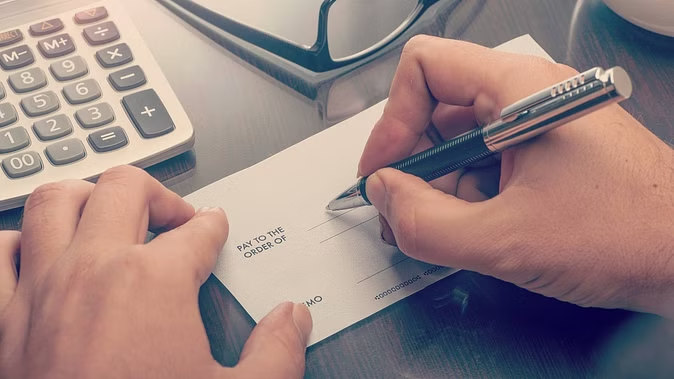In today's time, if you have to make a payment to someone, then very few people pay by cash and when it comes to large amounts, then people use online mediums more. Payment is done easily through this and nowadays there are many UPI apps as well, but it cannot be denied that people also use cheques to make payments. Not only this, but many times people make advance payments by cheque. In such a situation, if you also make payment by cheque, then it becomes important for you to know what things you have to keep in mind. This is because if your cheque bounces, then you can get into trouble. So let's know what rules you have to know before making payment by cheque. You can know about this in the next slides...

What is the rule of cheque bounce?
If you make a payment to someone by cheque and it bounces due to any reason, then a fine is deducted from your bank account. At the same time, you have to make the payment to the person who is to receive the payment within a month. If you do not do this, you can get into trouble.
If the check has bounced and for some reason, you are unable to make the payment even in a month, then a legal notice can be issued against you. You have to reply to this within 16 days. If you do not do this also, then a case can be made against you under section 138 of the Negotiable Instrument Act 1881.
There is also a provision for punishment:-
If you make a payment to someone by check and it bounces and even after that if you do not pay the money, then in such a situation a case can be registered against you or you can be jailed for up to two years. There is a provision for this in the law. So avoid making such a mistake.
Keep these things in mind:-
Whenever you make a payment to someone by cheque, keep a record of it.
Give the cheque on the same date on which you have money in your bank account.
Never give a cheque to anyone just by signing it, filling in the amount and other details yourself, etc.
(PC: Adobe stock)










